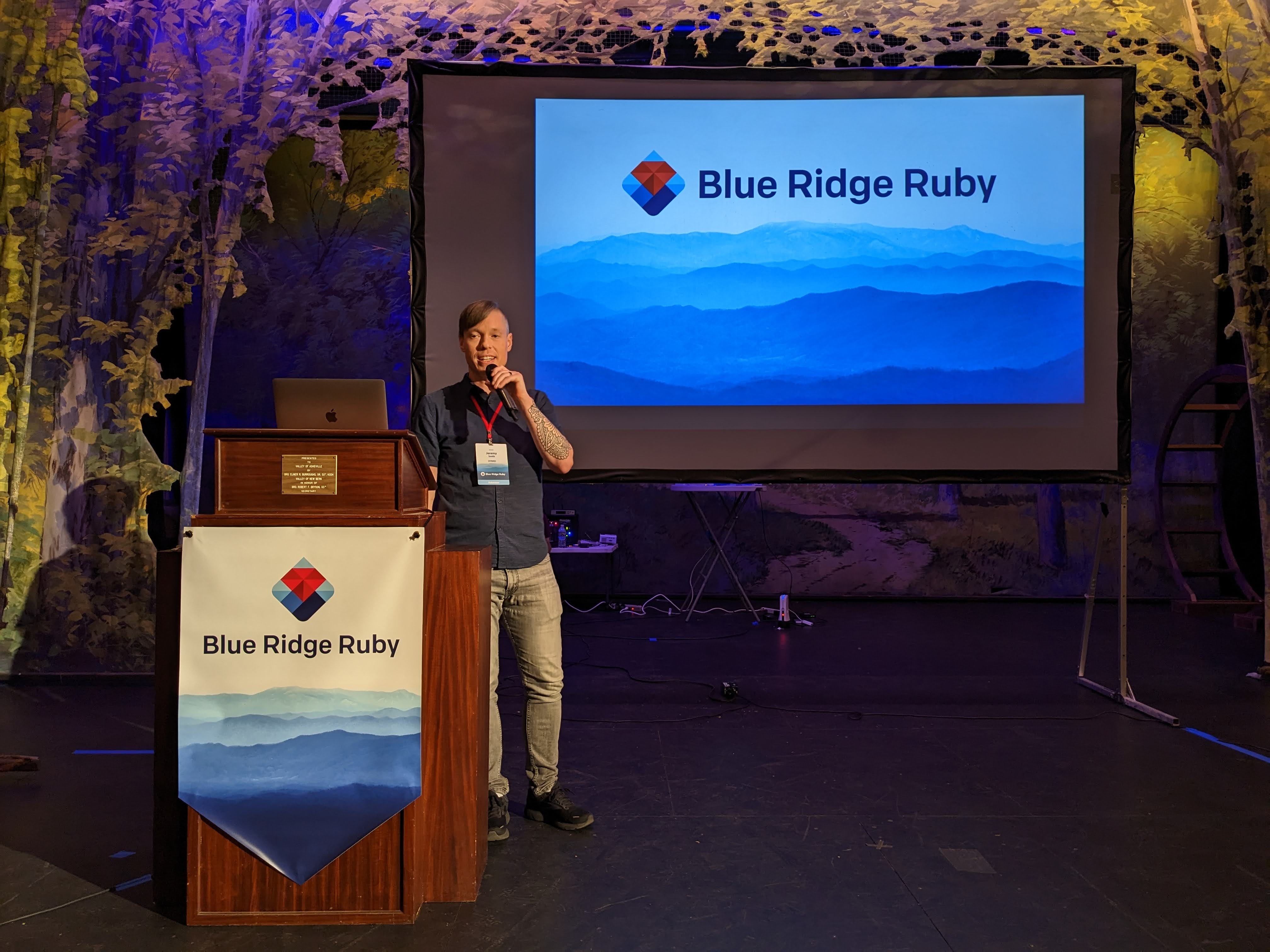Blue Ridge Ruby 2023 Recap
Blue Ridge Ruby 2023 🔗
Blue Ridge Ruby recently wrapped up in Asheville, North Carolina. This post is not intended as a review of any of the talks, but to highlight the variety of great work from all involved. I hope you’ll seek out the full videos of all the sessions that interest you once they are available.
Day 1 🔗
Welcome 🔗
Jeremy Smith gave an intro that I hope to see expanded into a full conference talk one day. Maybe after he’s not so busy organizing a conference.
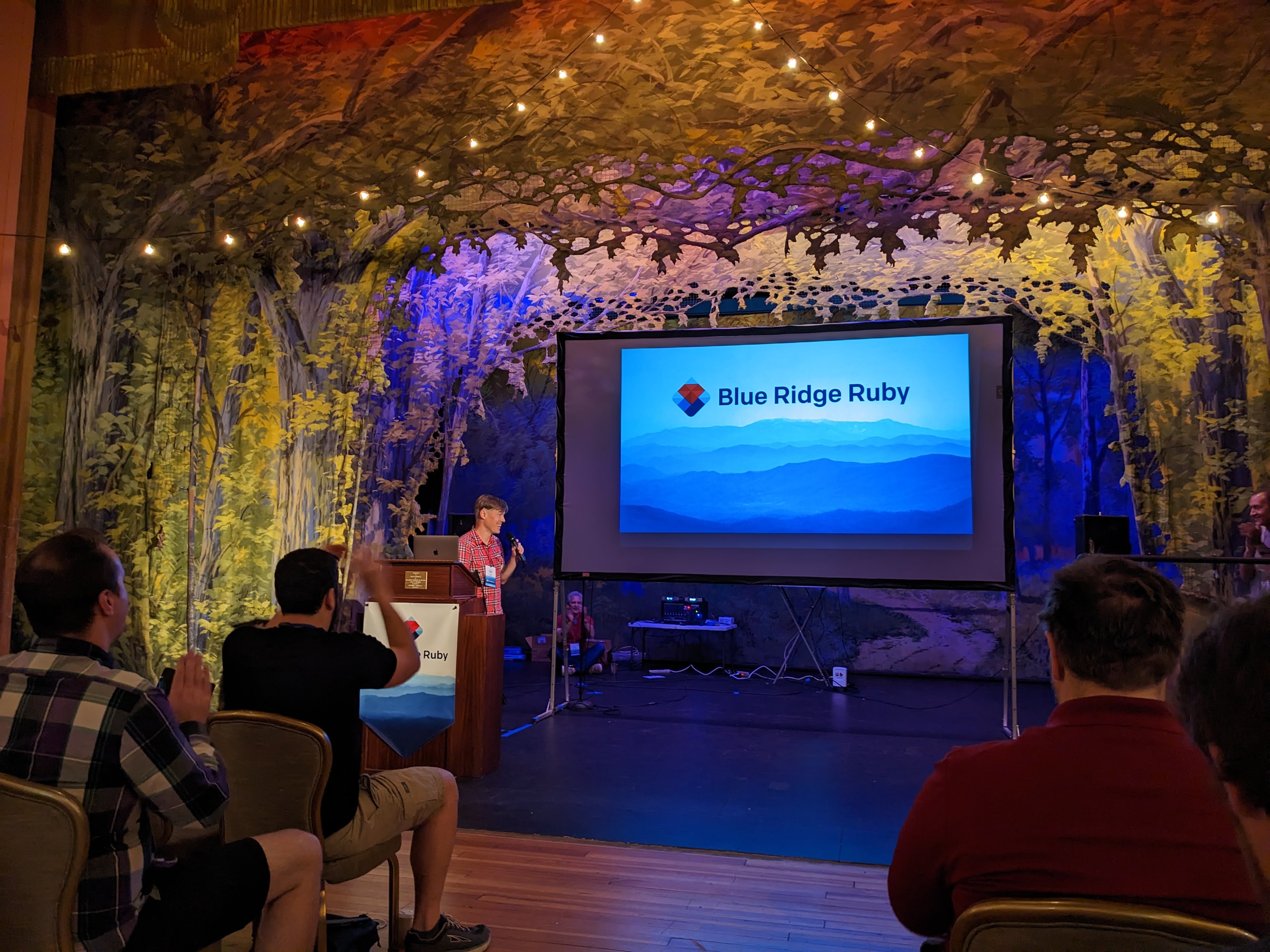
Enough Coverage To Beat The Band 🔗
I had the pleasure to bring the “Ruby’s Got You Covered” world tour to Asheville. This was my first time sharing this with an in-person audience.
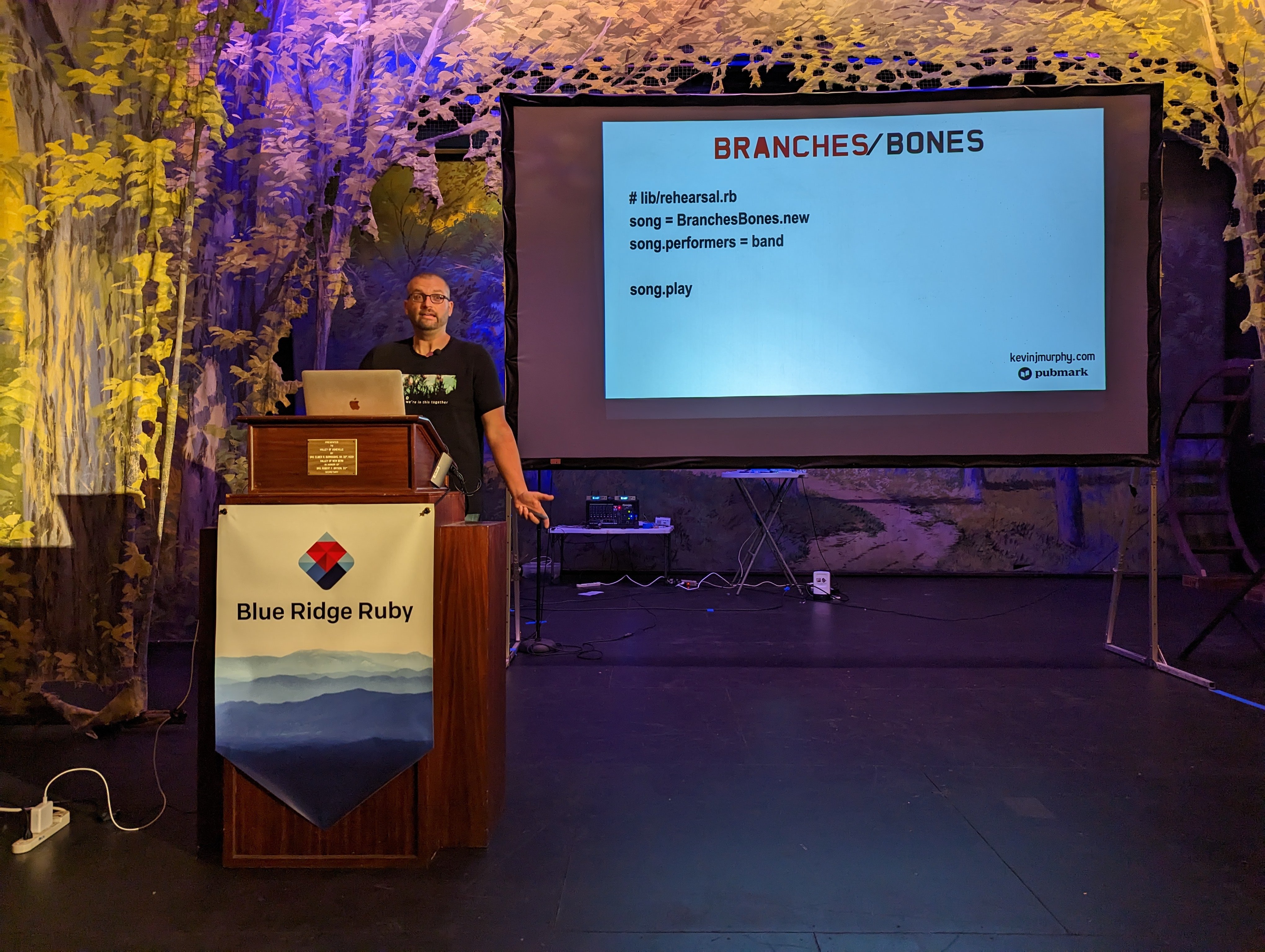
Empathetic Pair Programming with Nonviolent Communication 🔗
Stephanie Minn shared a way we can reframe our mindsets and statements in pairing situations and beyond. We reviewed observations, feelings, needs, and requests within the NVC (Nonviolent Communication) framework.
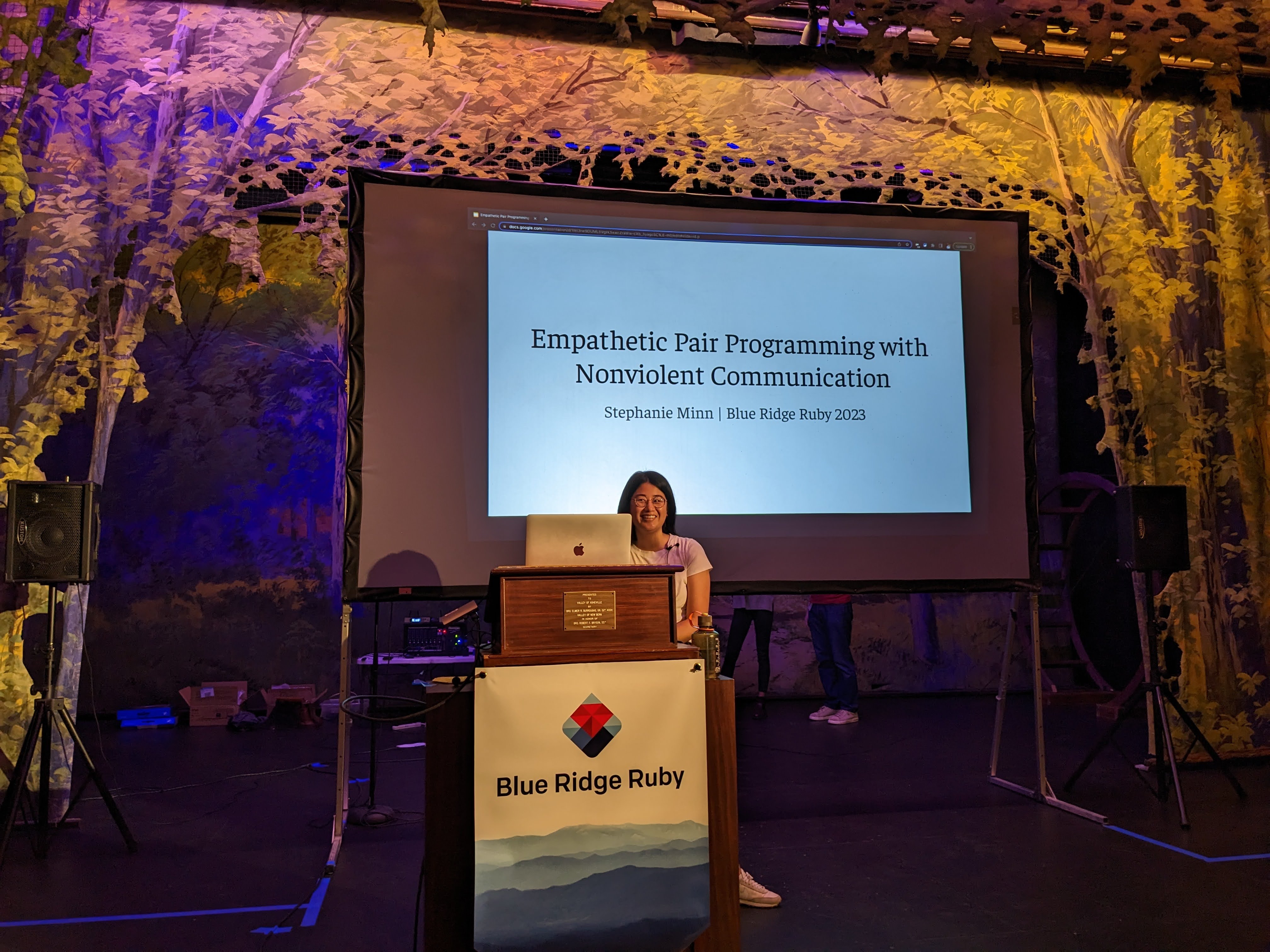
Forecasting the Future: An Introduction to Machine Learning for Weather Prediction in Native Ruby 🔗
Landon Gray gave us an appreciation for all the work that goes in to prepare, manipulate, and clean the training data used in machine learning models.
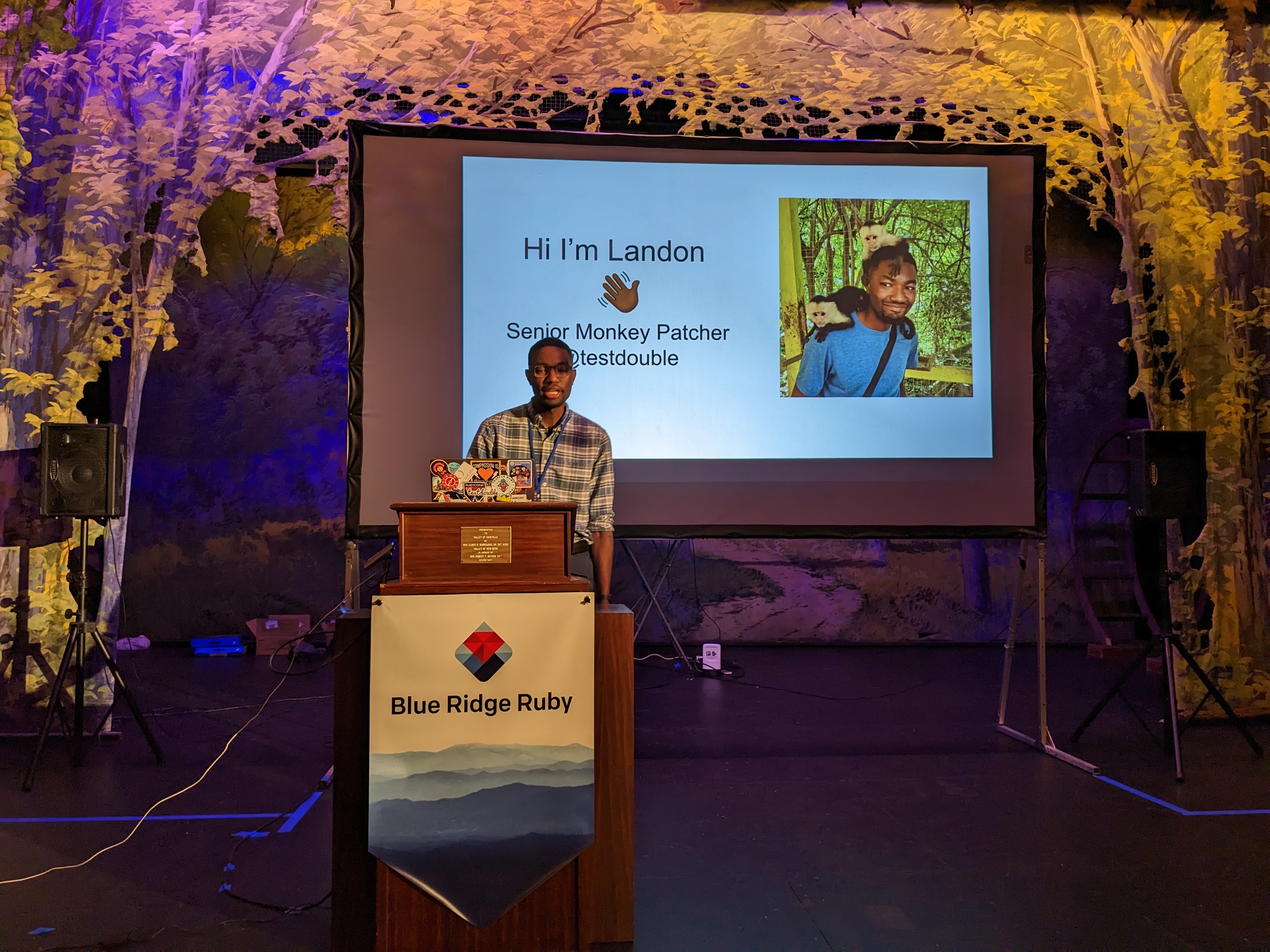
Who Wants To Be A Ruby Engineer? 🔗
Drew Bragg, to the surprise of everyone only paying attention to the schedule on the website, hosted a small version of his popular game show after lunch.
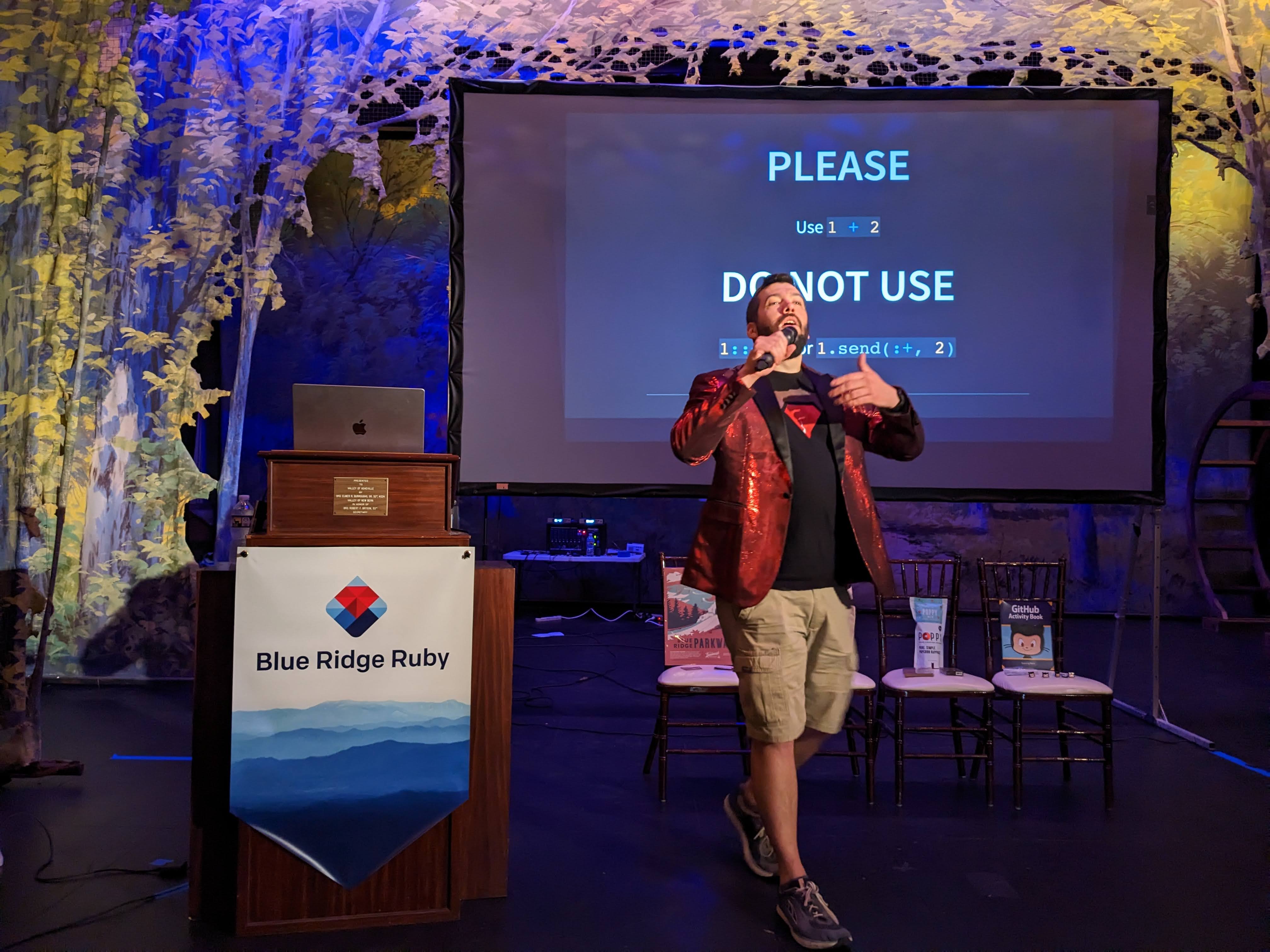
RSpec: The Bad Parts 🔗
Caleb Hearth demonstrated how we can use test structures that promote obviousness. Test examples should show what’s being tested and how it is being used.
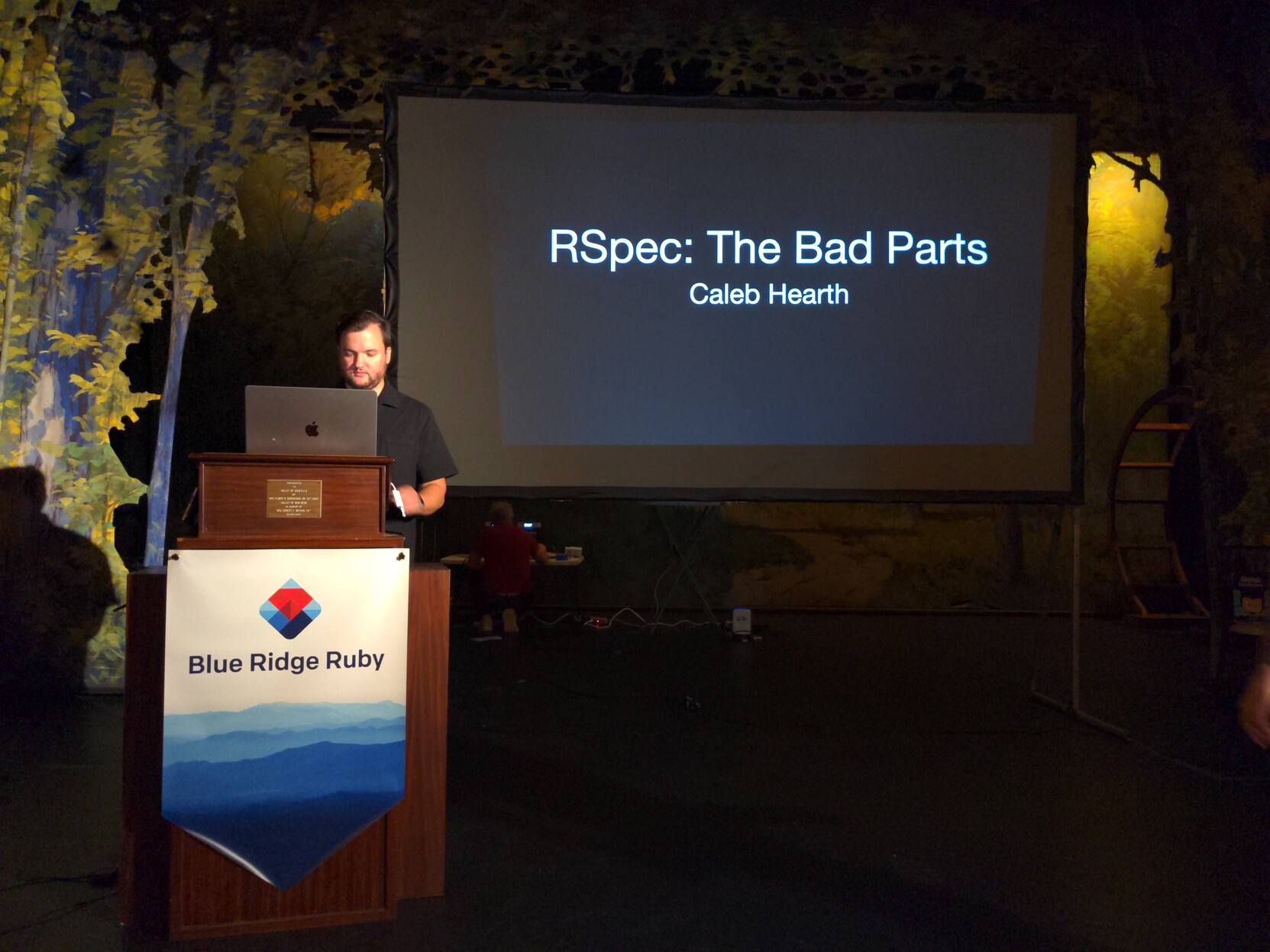
Maintenance Matters: Maintaining Your Rails App and Your Sanity 🔗
Annie Kiley shared 10 suggestions to keep maintenance at the forefront of your application development process. I liked their ethos to make it easier to do the better thing, and that standards are not standards unless they’re enforced.
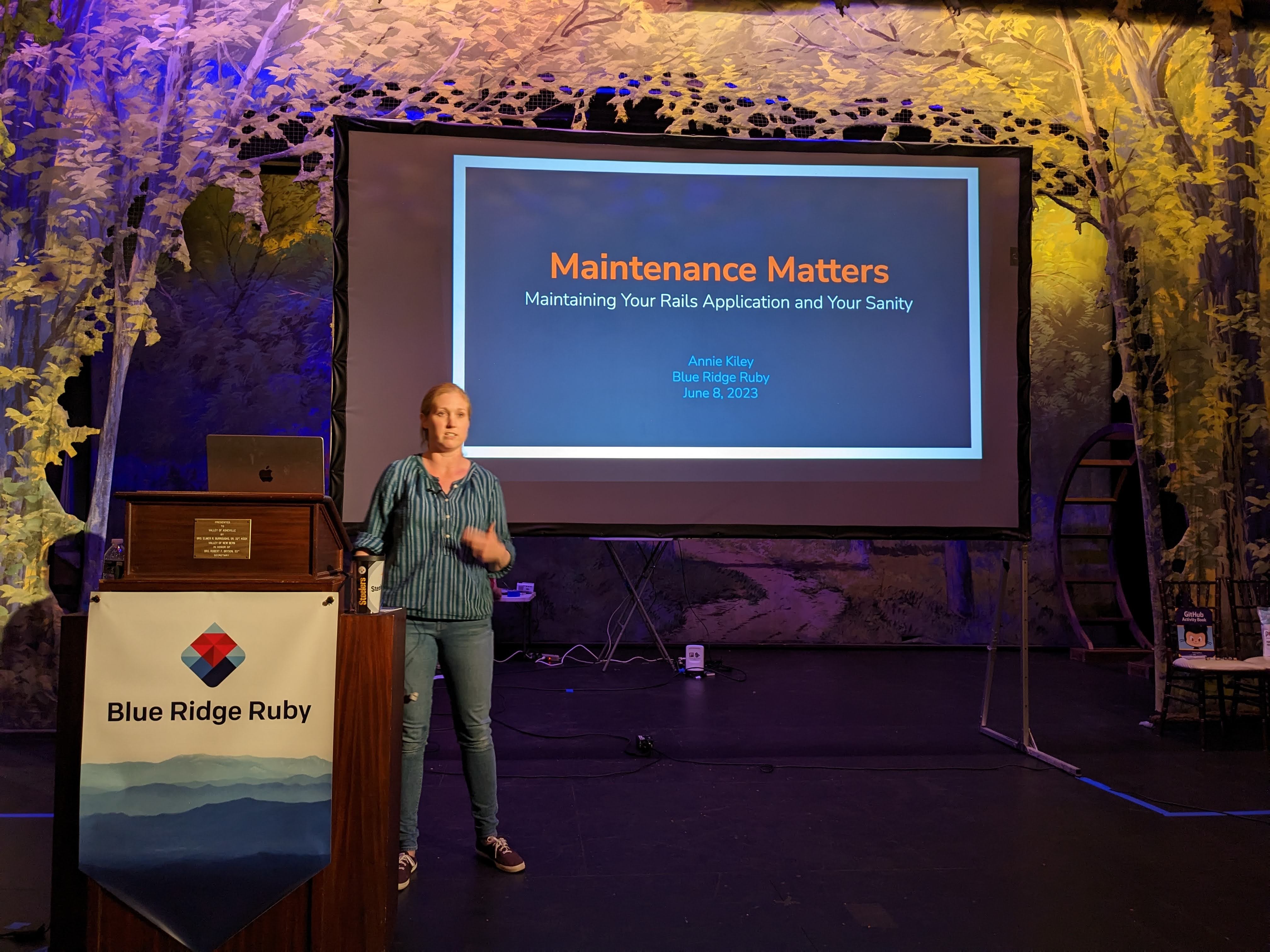
Making Ruby Fast(er) 🔗
Kevin Menard ended the day of talks, just as a different Kevin started them. This talk starts with a discussion on Instruction Set Architectures (ISA) on silicon and transitions to YARV optimizations of Ruby code on a virtual machine (VM). Interpreters, parsers, and compilers - oh my!
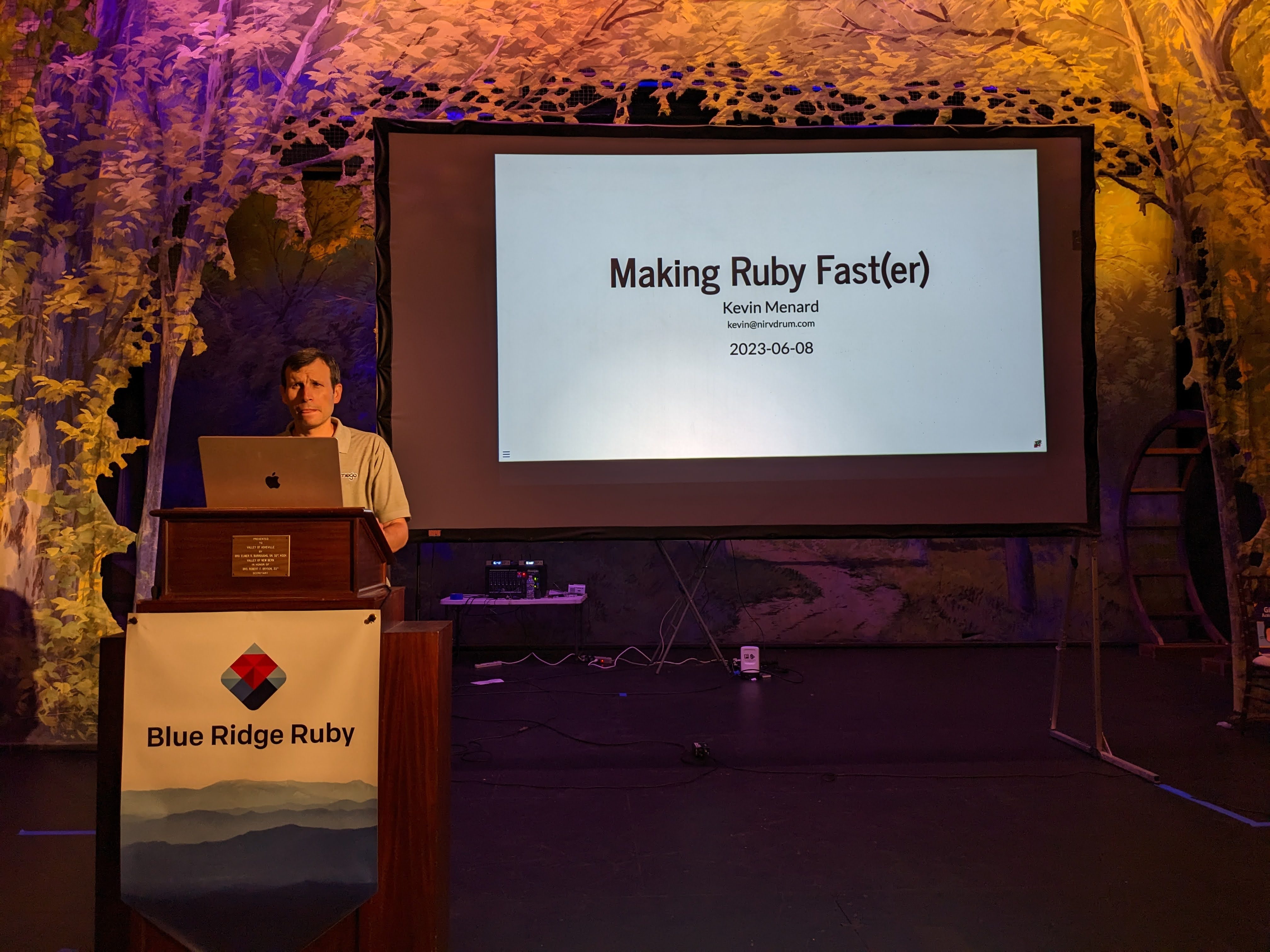
Day 2 🔗
What’s your type? Generating type signatures with Sorbet and Tapioca 🔗
Emily Samp reflected on her reflection experience. Through this we learned how Tapioca generates RBI files for Sorbet to use. Give this one a watch for her beautiful slide design and expert animations and transitions.
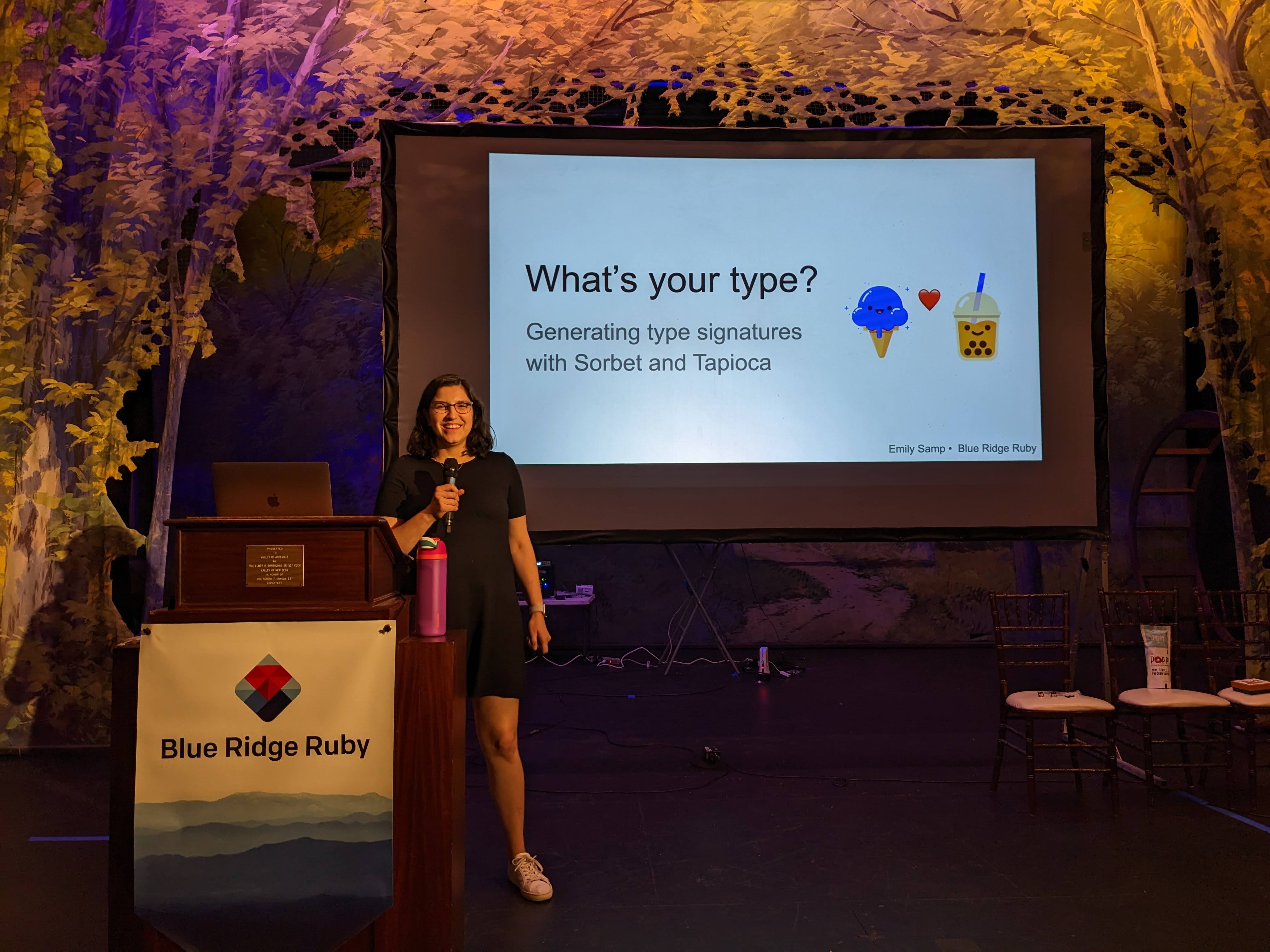
Digital Identity or: How I Learned to Stop Worrying and Love Web3 🔗
Thomas Carr discussed the concept of a self-sovereign identity. This enables a user to manage their own data.
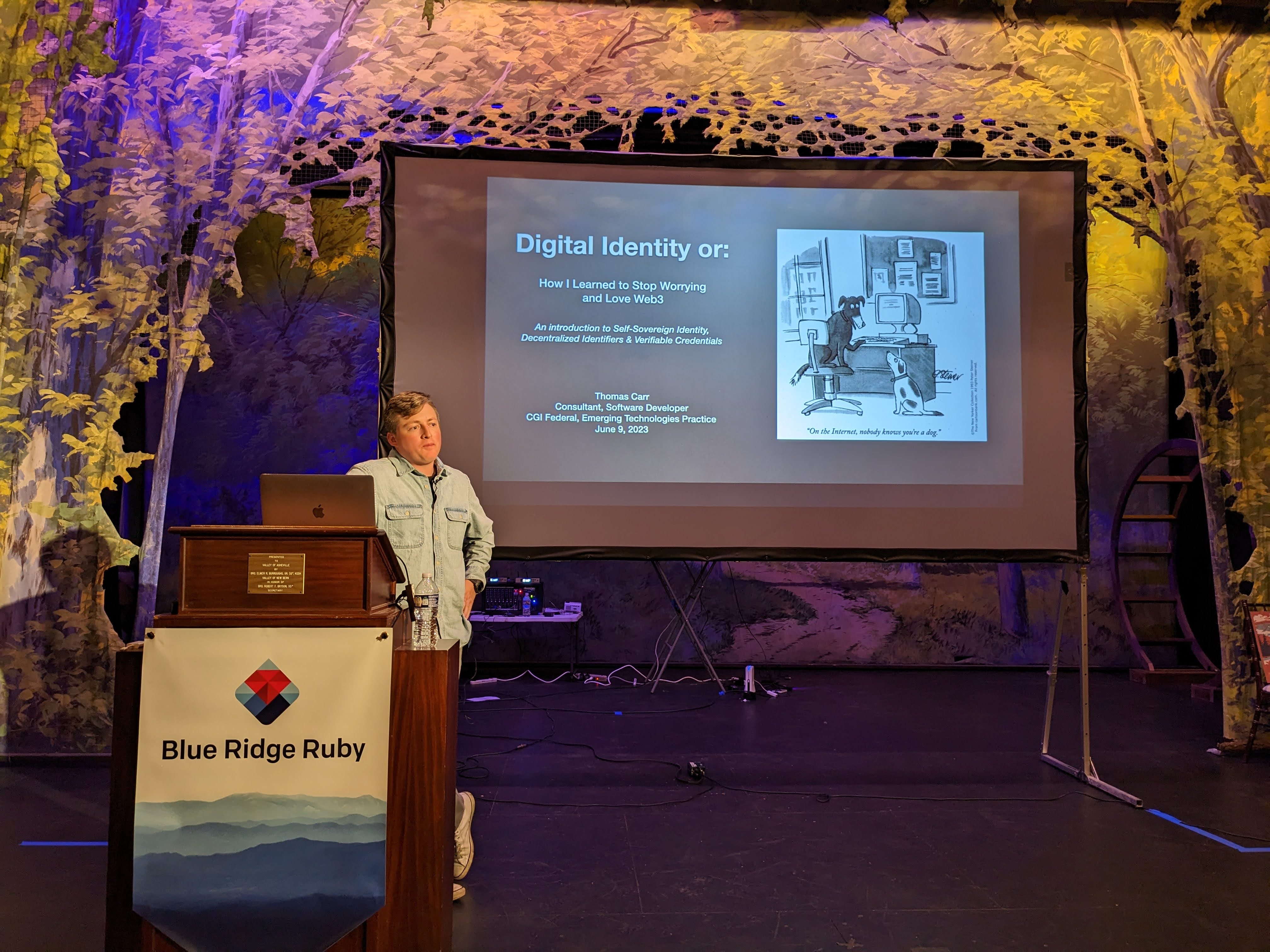
Go Pro with POROs 🔗
Ifat Ribon discussed encapsulation, clarity and simplicity. Starting with a primer on database wrappers and modules, we moved into exploring different patterns where Plain Old Ruby Objects (POROs) apply: services, API wrappers, virtual domain models, and request/presentation objects.
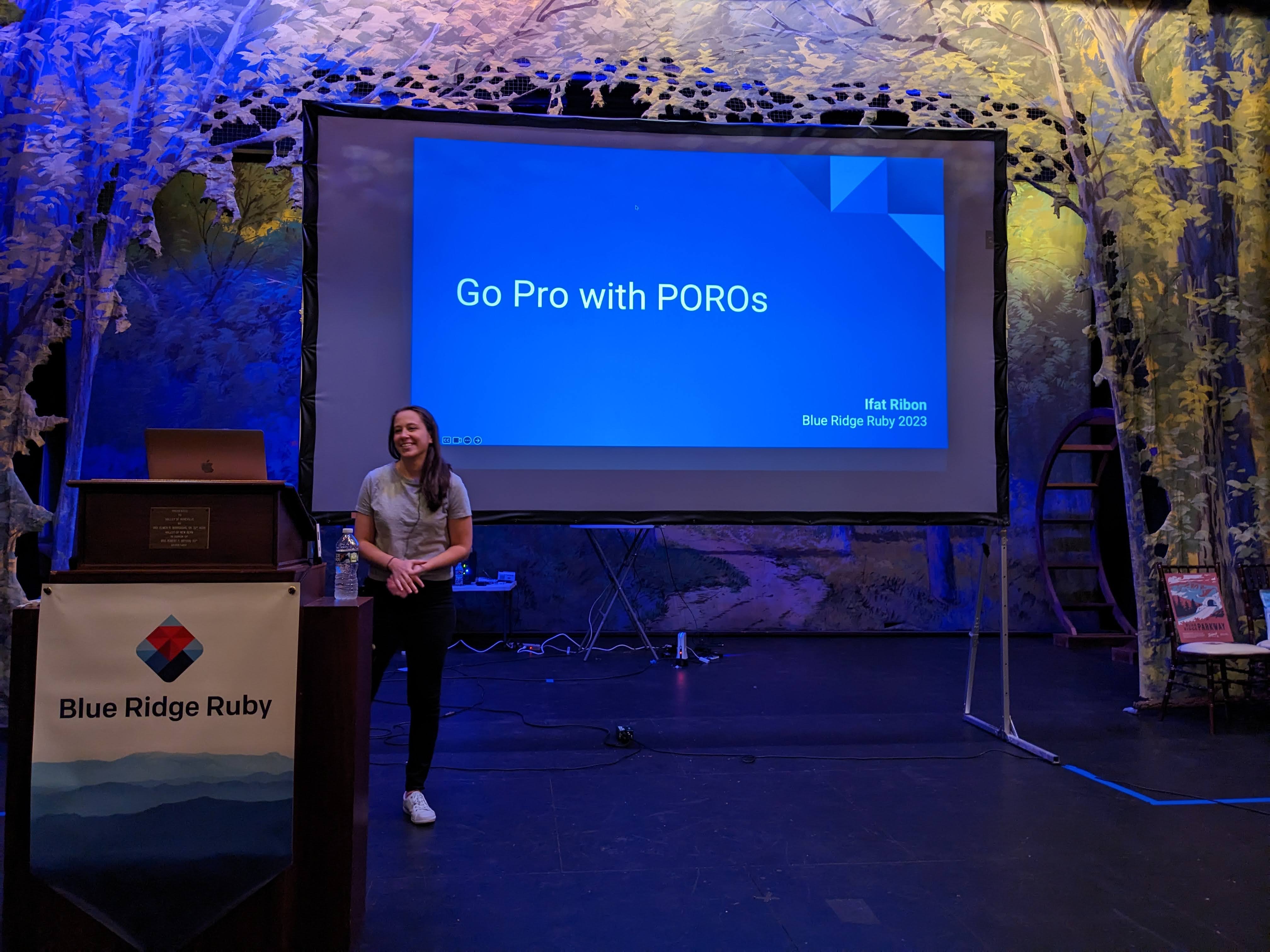
Lightning Talks 🔗
Fishing, stewardship, CLI tools for generating licenses and CI results, Rails tips, hiring, 1:1s with managers, and accessibility were just a few of the topics covered in these five minute sessions.
How can I move forward when I don’t know where I want to go? 🔗
Mo O’Connor introduced tools to guide decisions on moving forward. Individual Development Plans, applying/interviewing, somatics, pros/cons lists, mentorship, and building relationships were the topics covered.
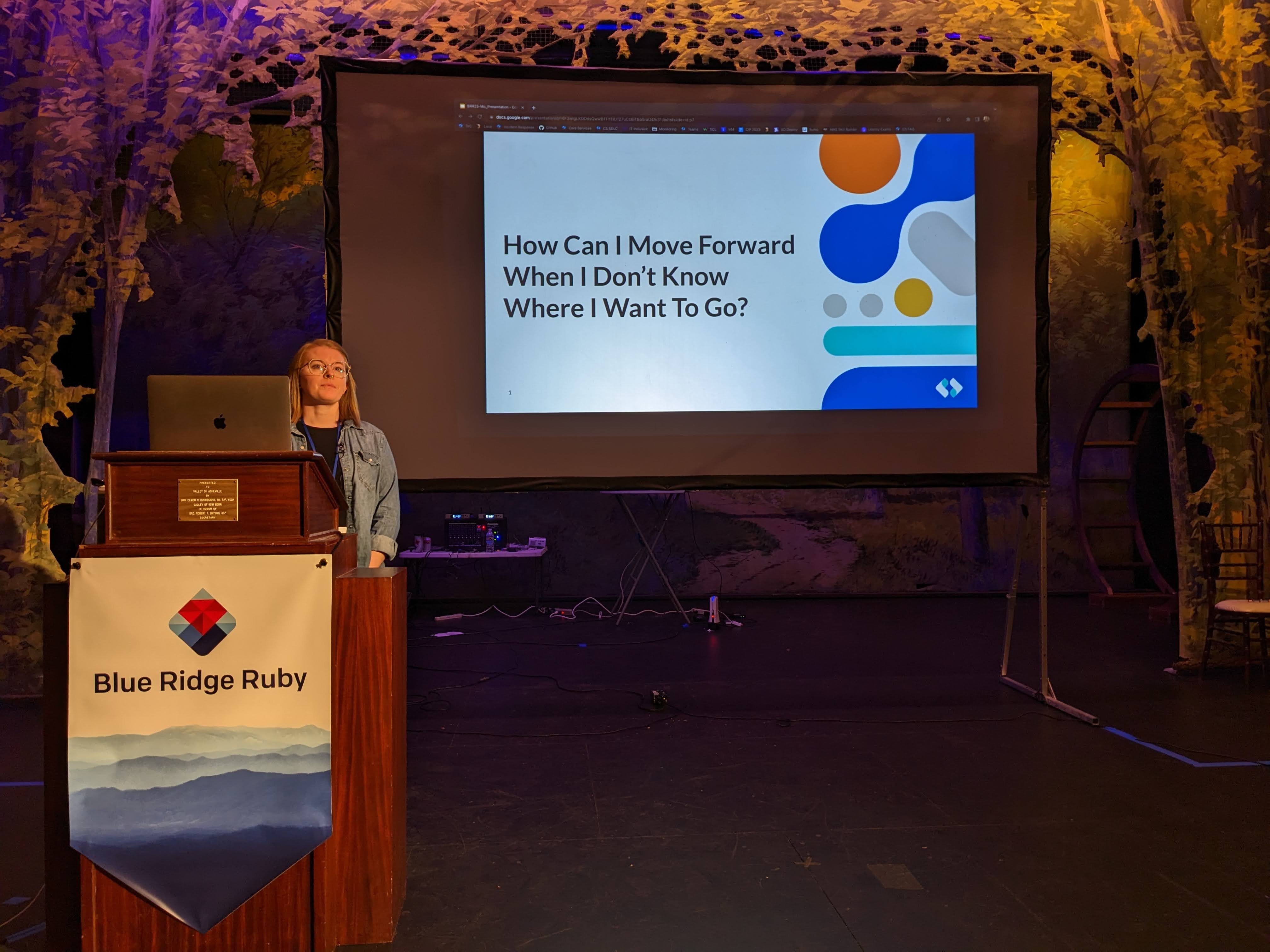
Appreciation 🔗
Thank you to Jeremy Smith for putting this idea into the world and making it a reality.
Thank you to Mark Locklear, Karl McCollester, and Joe Peck for helping to organize.
Thank you to the entire Blue Ridge Ruby Team:
- Mark Locklear
- Joe Peck
- Karl McCollester
- Johnathon Wright
- Bryce Senz
- Daniel Bradley
- Jeremy Smith
- Kristy Smith
- Porter Smith
- Jade Smith
- Thomas Carr
- Jay Sanders
Thank you to the sponsors for supporting a fledgling event. Particular thanks to Pubmark for helping support my participation.
Thank you to everyone who I met there. A conference doesn’t work unless people show up, and you all made it the event it became. Thanks to everyone for the kind words about my talk. I really appreciate it. Speaking is a lot of work - hearing from people afterwards is what makes it worth it.
Congrats Jeremy; you did it.
